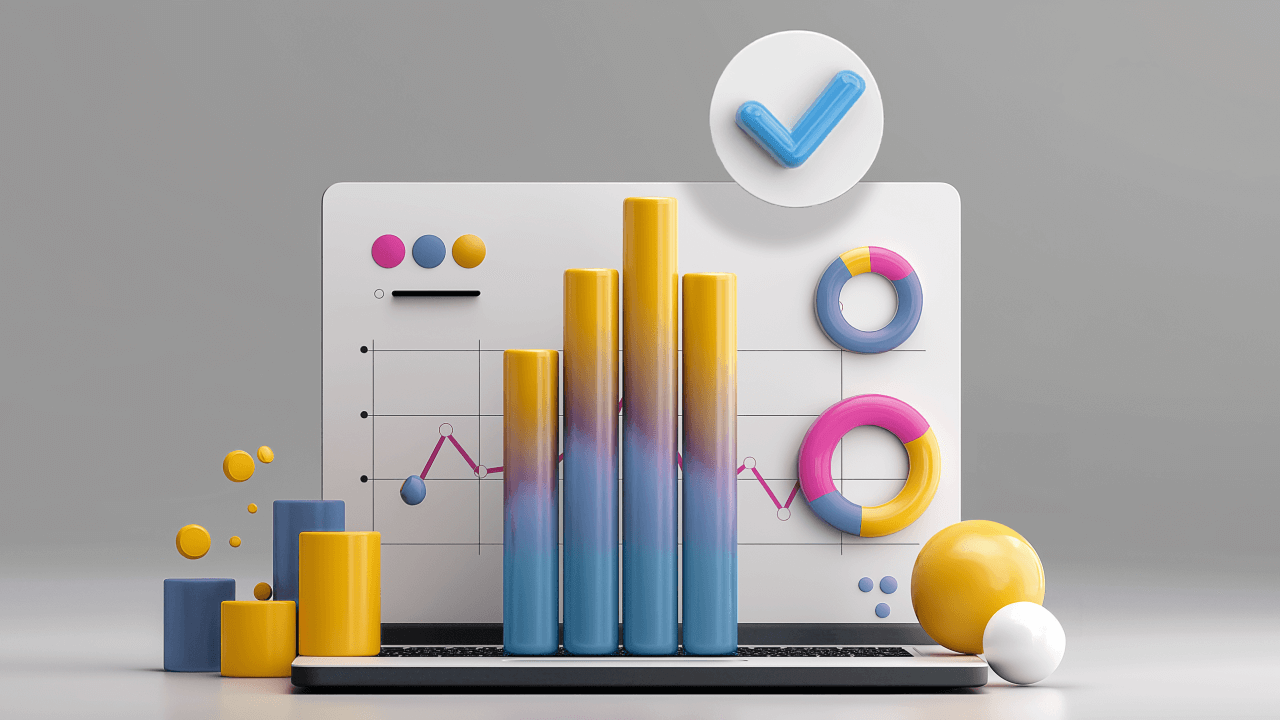What is a business intelligence analyst? Everything you need to know before you hire

Do you ever feel like you’re not getting the whole story when it comes to your company’s data?
Our world is becoming increasingly data-dependent. This creates a challenge for businesses: how can they make decisions based on data when they don’t have the in-house expertise to understand it all?
This is where business intelligence analysts come in. Business intelligence (BI) analysts are responsible for turning data into insights that help organizations make better decisions.
As a part of a key BI team, analysts collect and interpret data from a variety of sources to identify trends, patterns, and relationships. They then use this information to develop recommendations that can improve business processes or drive growth.
Does your team need a business intelligence analyst? If so, how can you find the right fit for your organization?
Let’s take a look at how business intelligence analysts can help your business, and what you should look for when hiring one.
Article at a glance:
- What is business intelligence, and what does a business intelligence analyst do?
- The benefits of having a business intelligence analyst on your team.
- How to find the right business intelligence analyst for your company.
- Tips for working with a business intelligence analyst.
- FAQs about business intelligence analysts.
What is business intelligence, and what does a business intelligence analyst do?
Before looking at a BI analyst, let’s first understand what business intelligence is.
Business intelligence (BI) is a process for turning data into insights that help organizations make better decisions.
With data being today’s digital currency, it is more important than ever for businesses to have a deep understanding of their data in order to make sound decisions.
There are plenty of tools and technologies available to help organizations with their business intelligence needs. But at the end of the day, it takes a human being to make sense of it all and turn data into insights. This is where business intelligence analysts can play a critical role.
A business intelligence analyst is responsible for turning data into insights that help organizations make better decisions—and ultimately, improve their bottom line.
BI analysts do this by collecting and interpreting data from a variety of sources to identify trends, patterns, and relationships. They then use this information to develop recommendations that can improve business processes or drive growth.
To put it simply, business intelligence analysts help organizations make sense of their data so they can make better decisions.

The benefits of having a business intelligence analyst on your team
Investing in any role on your team is a big decision. So why invest in a business intelligence analyst?
There are many benefits of having a BI analyst on your team, including the ability to make data-driven decisions. With a BI analyst on your team, you’ll have someone who can help you make sense of all the data at your disposal. This will allow you to make more informed, data-driven decisions that can help improve your bottom line.
Improved decision making
BI analysts don’t just provide data—they also provide insights and recommendations based on that data. Greater insight into your data can help you make better decisions that can improve your business.
Improved communication
BI analysts can help improve communication between different departments within your organization. They can do this by developing standardized reports and dashboards that everyone can understand.
Increased efficiency
A BI analyst can help streamline your decision-making process by automating data collection and analysis. This can free up your time so you can focus on other areas of your business.
Clarified goals
BI analysts can help you develop a clear understanding of your business goals. They can then work with you to develop a plan to achieve those goals.
If you’re looking for ways to improve your business, investing in a business intelligence analyst is a great place to start.
How to find the right business intelligence analyst for your company
Not all business intelligence analysts are created equal. As data becomes increasingly complex, your BI analyst needs to be able to keep up.
When looking for a BI analyst, you should look for someone who:
1. Has experience working with the type of data you have
If you have big data, you’ll need a BI analyst who knows how to work with large data sets. If you have complex data, you’ll need a BI analyst who is comfortable working with multiple data sources.
Ask:
- “What type of data do you feel most comfortable working with?”
- “How have you handled a large data set in the past?”
- “Can you give me an example of a complex data set you’ve worked with?”
2. Is comfortable using different tools:
The best BI analysts are comfortable using a variety of tools to collect and interpret data. They should be able to use everything from Excel to SQL and beyond.
Ask:
- “What tools do you feel most skilled at using for BI?”
- “How would you go about collecting data from this source?”
- “Can you give me an example of a tool you’ve used to solve this type of problem?”
3. Has strong problem-solving skills
BI analysts need to be able to identify trends, patterns, and relationships in data. They should also be able to think creatively to find solutions to problems.
Ask:
- “Can you give me an example of a problem you solved using data?”
- “How did you go about finding the solution to this problem?”
- “What was the most difficult part of this problem?”
4. Is a good communicator
BI analysts need to be able to communicate clearly, both in writing and verbally. They should be able to explain complex concepts in simple terms.
Ask:
- “Can you give me an example of a BI report you wrote in the past?”
- “How would you explain this concept to someone who is not familiar with it?”
- “What do you think is the most important part of communication when working with data?”
5. Understands your business
A BI analyst who understands your business will be better able to help you achieve your goals. They should be familiar with your industry and the challenges you face.
Ask:
- “What do you know about our company/industry?”
- “What do you think are our biggest challenges?”
- “How do you think business intelligence can help us achieve our goals?”
You should also look for a BI analyst who is a good fit for your company culture. They should be someone who you feel comfortable working with on a daily basis.
When you’ve found a BI analyst who meets all of these criteria, you’ll be well on your way to improving your business. While different BI analysts will have different skills and experience, the best ones will possess all of these qualities—and offer high ROI for your business.

Tips for working with a business intelligence analyst
Now that you know what to look for in a business intelligence analyst, it’s time to learn how to work with one. Here are a few tips:
Be clear about your goals
Before you start working with a BI analyst, be clear about your goals. What do you hope to achieve? What problems do you hope to solve? The more specific you can be, the better.
Provide data
Your BI analyst will need access to data in order to do their job. Make sure you have a system in place for collecting and storing data.
Communicate regularly
BI is an ongoing process, so you’ll need to communicate regularly with your analyst. Make sure you set aside time each week to review progress and discuss new goals.
Be open to change
BI can be a powerful tool, but it’s not always perfect. Be open to making changes to your process as you go.
Trust your analyst
A good BI analyst will have the skills and experience necessary to help you achieve your goals. Trust their expertise and give them the freedom to do their job.
If you follow these tips, you’ll be well on your way to making the most of your business intelligence analyst.
FAQ
How big does my company need to be to benefit from a business intelligence analyst?
There is no minimum size for a company to benefit from business intelligence. BI analysts can help companies of all sizes, in all industries.
How much does it cost to hire a business intelligence analyst?
The cost of hiring a BI analyst will vary depending on their experience and skills. A recent survey found that the average salary for a BI analyst in the United States is $85,000.
How long does it take to see results from business intelligence?
The time frame for seeing results from business intelligence will vary depending on the goals you set. In general, you can expect to see results within a few months.
Conclusion
When used correctly, business intelligence can be a powerful tool for any business. By working with a skilled BI analyst, you can collect and analyze data, identify trends, and find solutions to problems. If you’re looking to improve your business, a BI analyst is a valuable asset.
Use the tips in this article to learn how to work with a BI analyst and get the most out of business intelligence. And if you’re looking for a skilled BI analyst to help you achieve your goals, consider the criteria in this article to find the best fit for your company.
Domo transforms the way these companies manage business.








